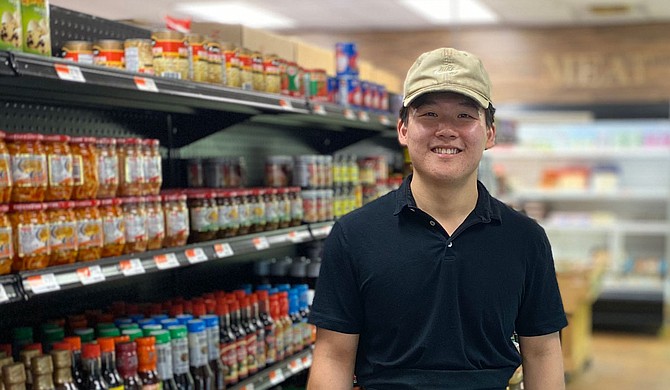STARKVILLE, Miss. (AP) — When the first wave of COVID-19 panic buying swept through Starkville about a month ago, there was no run on toilet paper at Asian Foods Market on Highway 12.
Asian Foods Market sells a little of most everything and a lot of some things, but no toilet paper.
That doesn’t mean the family-owned business was immune to panic buying.
“For us, it was rice,” said Kevin Yang, whose parents opened the store in 2011 and added a restaurant next door two years ago. “Lots of rice. About two weeks after spring break, everybody started hoarding rice all at the same time.”
The variety of rice, often called “sticky rice,” is sweeter and stickier than the conventional white rice typically consumed by non-Asians in the U.S. While that “American” rice is usually sold in one or two-pound packages, the rice Asian Market sells comes in a single size -- 50-pound bags.
“In most Asian cultures, rice is the basis of just about every meal,” Yang said. “I don’t even know what you would compare it to in American food, maybe milk? All I know is that rice is something every Asian household has stocked.”
You might think a 50-pound bag of rice would go a long way. Not so, Yang said.
“At the start of all this, we sold a pallet of rice in one day,” Yang said. “That’s 60 50-pound bags of rice. People would come in, buy two bags and then come the next day and buy two more. It was crazy.”
Yang, 22, is the first native-born American in his family. His parents immigrated to the U.S. from China in the mid-1980s, settling in Brooklyn, New York.
The family moved to Starkville when Yang was 2, buying the old Taste of China Restaurant before later shifting the focus to a market, something the family felt filled a void in the market where Mississippi State’s large Asian student population has started to grow.
“A lot of our business comes from Mississippi State,” Yang said. “Our store is about the only place they can find many of the things you need in Asian cooking. We filled a niche and we’ve grown our business pretty steadily over the years.”
As it is with most family-owned businesses, Yang grew up in the market, performing just about every job there.
“When I was in seventh grade, I was checking out customers,” he said. “I’ve done everything, but now mainly I work in the kitchen cooking with my father.”
Yang said business is “doing OK,” during the COVID-19 crisis, so far. The exception is the restaurant which, like all restaurants, relies exclusively on take-out orders.
“We’re not really doing much business on the restaurant side,” Yang said. “We still keep it going, though.”
Yang said the restaurant has already proven its strategic value, though.
“What we’ve seen since we opened the restaurant is that it’s brought in a lot more (non-Asian) customers,” Yang said. “They come in, taste the food and decide they want to make it at home. Since the market is in the same building, they’ll come over and shop.”
For Yang and the other workers, there is also another task they happily perform.
“Almost none of the writing on the packages is in English,” he said. “So we’ll read the packing and tell them about the product.”
He also provides cooking tips.
“I always ask them what they have,” he said. “Do they have pork? I’ll make some suggestions about some pork dishes. I think it’s fun for a lot of customers to sort of discover a new style of cooking. That’s good for us, so we’re happy to help.”
Yang said that while the market has held its own during the crisis, there’s a chance business will eventually decline.
“A lot depends on what happens in the fall when classes at Mississippi State begin again,” he said. “We’ll be watching to see if the international students come back. If they don’t, that’s going to affect us. We’ve built our business on them and while we are getting more (non-Asians) customers, the Asians students are who we rely on the most.”
Copyright Associated Press. All rights reserved. This material may not be published, broadcast, rewritten, or redistributed.



Comments
Use the comment form below to begin a discussion about this content.
comments powered by Disqus